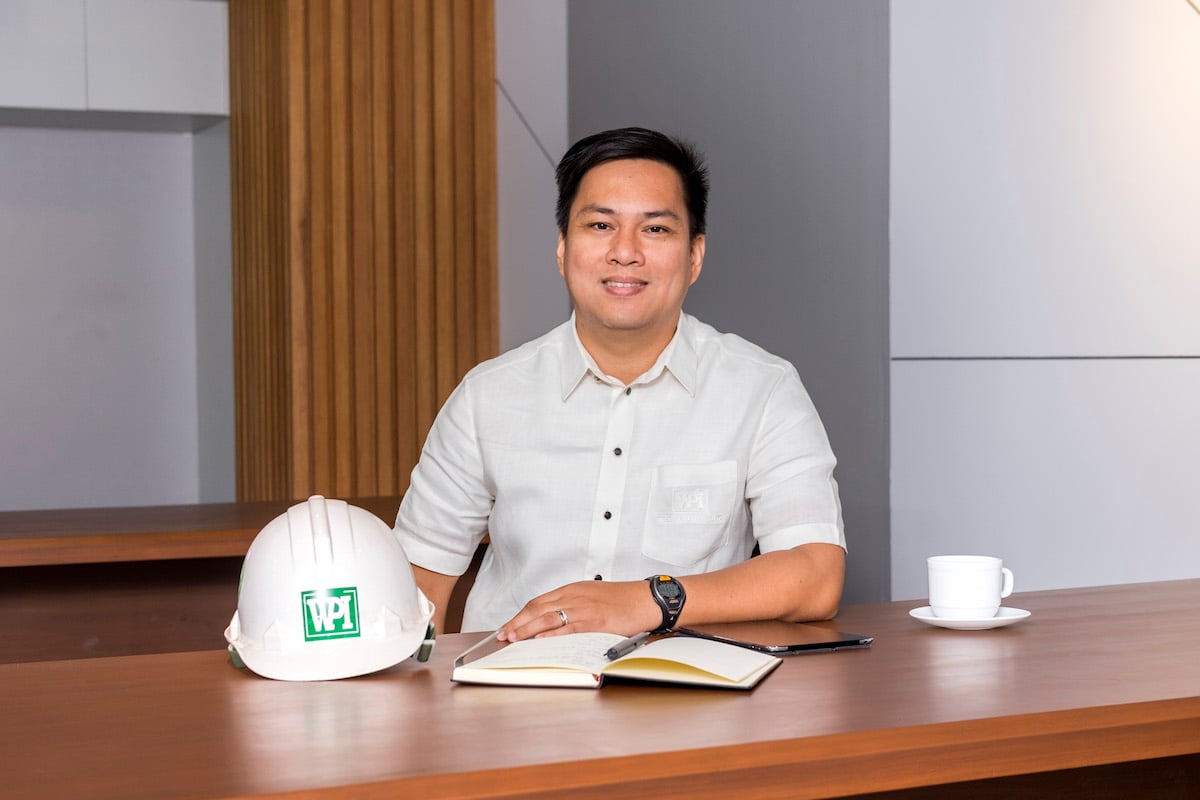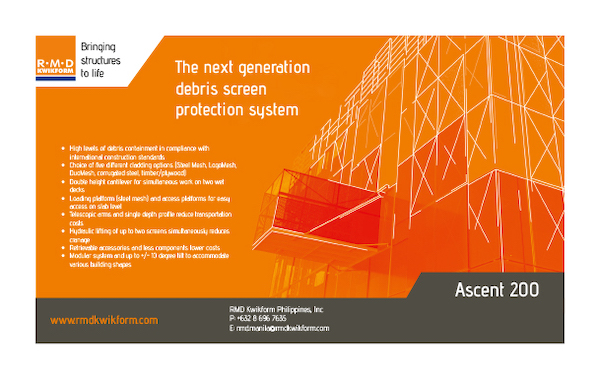For a construction company on the go, Whiteport would be considered relatively young at just 11 years old. A fast-growing name in the industry, Whiteport Inc was founded in the Philippines in early January 2009 by Danilo Tamayo and his daughter, Andrea Marie Tamayo-Ulep.

It started life as a fit-out works contractor specialising in building interiors, and soon developed a reputation for providing exceptional finished work. Its portfolio grew quickly to include everything from high-rise buildings and hotel developments to even churches.
It is now considered a AAA general contractor in the highly contested construction sector of fit-out works, and has branched out to handle full renovation works and general building construction.
“When Whiteport started, we were a mid-size company doing the architectural work inside a building,” says Whiteport’s COO, Edimar Ulep. “Over the past seven years, we have grown into a construction company. For our fit-out construction work, right now we have a three-year workload.”
After graduating in 2004, Edimar began his career as an engineer in a structural consulting firm, and worked there for four years before moving to Whiteport’s ‘mother’ company, DDT Konstract Inc, where he eventually accepted the role of Chief Technology Officer. In 2017, he was confirmed as COO of Whiteport.
Edimar was quick off the mark in building the company’s talent base upon taking on the role. He achieved this by pushing its young employees to improve themselves through tackling new and sometimes daunting tasks that push them out of their comfort zones. He finds that this usually works to build their skills and confidence.
“The first opportunity I saw when I took the role of COO was how I can assist young talent to move forward. I do that by knowing them, one by one, profiling their talents, and developing them through both ‘soft’ skills and technical skills,” he explains.
“Also, by assigning difficult assignments for them and putting them in uncomfortable situations, you can rotate them and see how they respond. Out of that, they also discover their other talents. That’s how you develop their abilities.”
Edimar’s development of relationships with young employees resonates with his view of Whiteport’s interactions with their many suppliers, with whom it enjoys longstanding partnerships. “As a construction company, we are dependent on the materials that our suppliers provide, so I think all of them are important to us,” he explains.
“When we engage them, we go in with expectations, we say what we want, we explain to them our conditions and our plans, and we don’t hide the fine print on our contracts.
“We also ask them about their terms, what their expectations are too, so everything is abundantly clear on both sides. But of course, we always communicate with them every time we have a special requirement, so they can customise their service or supply to us. I think that shows how close we are to our suppliers. We can engage them on special projects that need some innovation or imagination, and they can work closely with us.”

The volatility of the construction industry in the Philippines – indeed, everywhere – takes both patience and nerve to ride through its vicissitudes, says Edimar. There are changes, disruptions and hurdles at every turn, and it takes strict managerial control to work through them all.
“The challenge for a construction company is maintaining your composure. The construction industry can be difficult because it is very dynamic. When I say dynamic, I mean challenges today may not be applicable tomorrow, so you should always be directly involved in the construction process. You should always know every minor detail you can possibly think of for the project. In construction, I think you can supervise on a certain level, but most of the time you are micromanaging because we managers should know the details. So maintaining composure and a healthy state of mind on a daily basis is a prerequisite for operating in the construction industry.”
“The challenge for a construction company is maintaining your composure. The construction industry can be difficult because it is very dynamic.”
Edimar suggests that much of the company’s ongoing success can be measured by its structure as a family business.
“The base of the company is corporate, but our internal structure is very familial in nature, maintaining close relationships by always communicating, and recognising a job well done,” he says.
“People are hungry for their own development, so we involve employees directly in solving problems and actually putting them out front, but they know that I’ll back them whatever happens.”
Edimar gains particular satisfaction from overcoming obstacles and challenges in his role, and considers it the most rewarding aspect of the job. To escape the inevitable stress that his role entails, he has simple, low-key ways to unwind in and out of the office.
“I think solving the issues and problems of the day is the best part of my job,” he enthuses. “You know, when you collaborate and are able to conquer or eliminate problems, it’s a very good feeling.
“In the office, if I need to reset, I just close my eyes for 15 minutes and disconnect. When I’m stressed, I play golf. I whack the ball as hard as I can. I mostly play alone; I feel relaxed when I’m playing alone very early in the morning. If I have some free time, I play with my closest friends.”
Edimar was once given some advice that he has taken to heart, and lives by it. It was a simple observation by his mentor – Whiteport’s Chairman, Danilo. “Always be humble,” he advises.
“It goes a long way. Our Chairman always advises humility, because if you are humble you are more receptive, whatever position you are in. You’re always receptive to criticism, but also advice, realising that you also know your limitations and weaknesses. If you’re humble, you can accept it and you can grow, and you’re not clouded by your ego.”
Sound advice to build on.
Proudly supported by:



